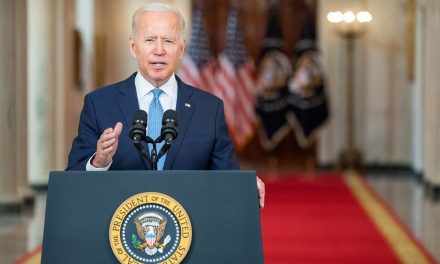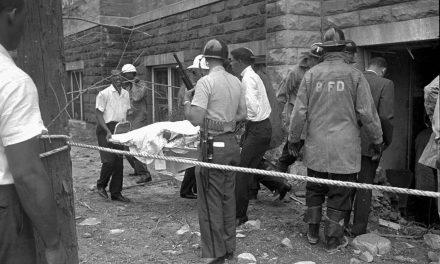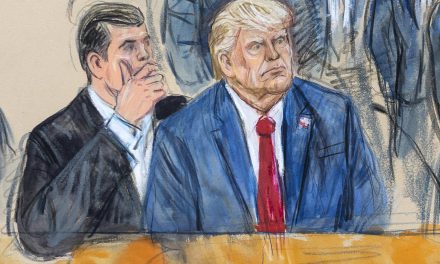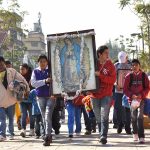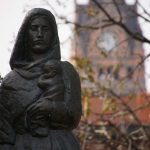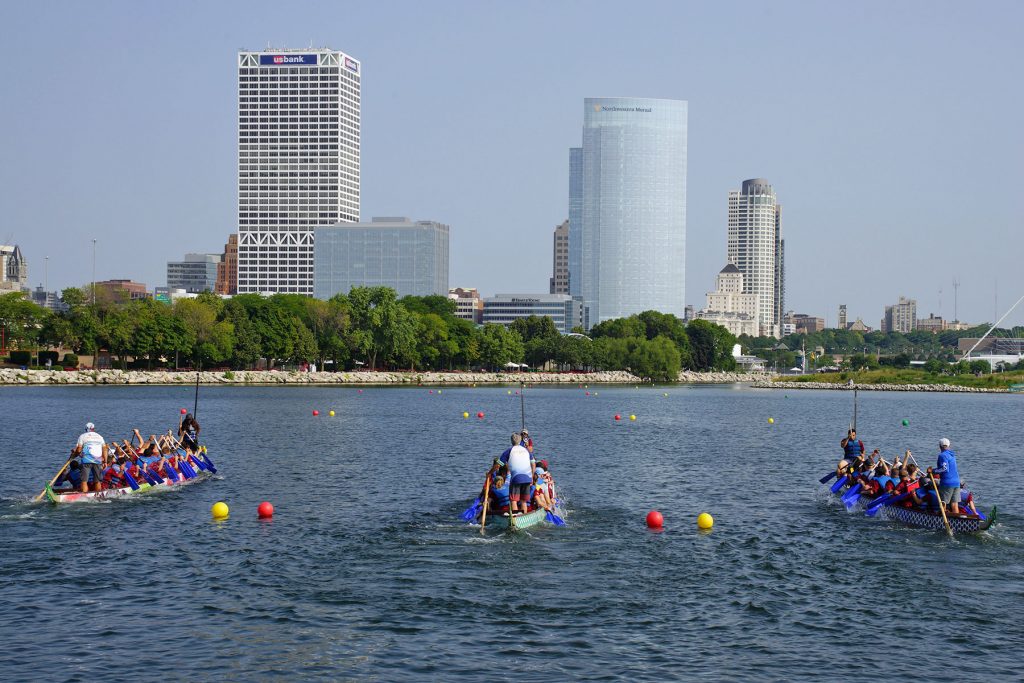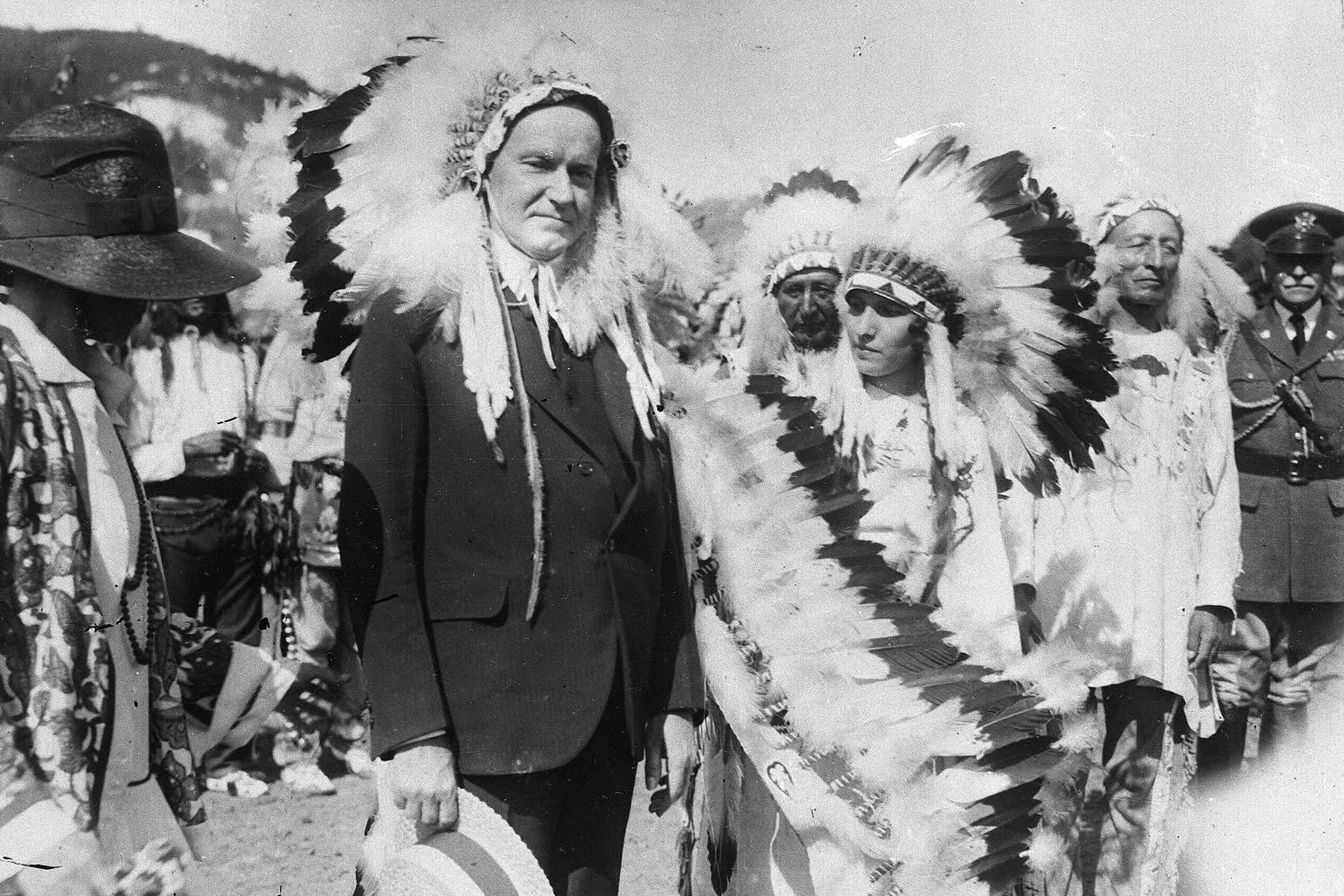
June 2 was the one-hundredth anniversary of the Indian Citizenship Act, which declared that “all non-citizen Indians born within the territorial limits of the United States be, and they are hereby, declared to be citizens of the United States.”
The status was “provided, that the granting of such citizenship shall not in any manner impair or otherwise affect the right of any Indian to tribal or other property.”
That declaration had been a long time coming. The Constitution, ratified in 1789, excluded “Indians not taxed” from the population on which officials would calculate representation in the House of Representatives. In the 1857 Dred Scott v. Sandford decision, the Supreme Court reiterated that Indigenous tribes were independent nations.
It called Indigenous peoples equivalent to “the subjects of any other foreign Government.” They could be naturalized, thereby becoming citizens of a state and of the United States. And at that point, they “would be entitled to all the rights and privileges which would belong to an emigrant from any other foreign people.”
The Fourteenth Amendment, ratified in 1868, established that “all persons born or naturalized in the United States, and subject to the jurisdiction thereof, are citizens of the United States and of the State wherein they reside.”
But it continued to exclude “Indians not taxed” from the population used to calculate representation in the House of Representatives.
In 1880, John Elk, a member of the Winnebago tribe, tried to register to vote, saying he had been living off the reservation and had renounced the tribal affiliation under which he was born. In 1884, in Elk v. Wilkins, the Supreme Court affirmed that the Fourteenth Amendment to the Constitution did not cover Indigenous Americans who were living under the jurisdiction of a tribe when they were born.
In 1887 the Dawes Act provided that any Indigenous American who accepted an individual land grant could become a citizen, but those who did not remained noncitizens.
As Interior Secretary Deb Haaland pointed out today in an article in Native News Online, Elk v. Wilkins meant that when Olympians Louis Tewanima and Jim Thorpe represented the United States in the 1912 Olympic games in Stockholm, Sweden, they were not legally American citizens. A member of the Hopi Tribe, Tewanima won the silver medal for the 10,000 meter run.
Thorpe was a member of the Sac and Fox Nation, and in 1912 he won two Olympic gold medals, in Classic pentathlon — sprint hurdles, long jump, high jump, shot put, and middle distance run — and in decathlon, which added five more track and field events to the Classic pentathlon.
The Associated Press later voted Thorpe “The Greatest Athlete of the First Half of the Century” as he played both professional football and professional baseball, but it was his wins at the 1912 Olympics that made him a legend. Congratulating him on his win, Sweden’s King Gustav V allegedly said, “Sir, you are the greatest athlete in the world.”
Still, it was World War I that forced lawmakers to confront the contradiction of noncitizen Indigenous Americans. According to the Gilder Lehrman Institute for American History, more than 11,000 American Indians served in World War I: nearly 5,000 enlisted and about 6,500 were drafted, making up a total of about 25% of Indigenous men despite the fact that most Indigenous men were not citizens.
It was during World War I that members of the Choctaw and Cherokee Nations began to transmit messages for the American forces in a code based in their own languages, the inspiration for the Code Talkers of World War II. In 1919, in recognition of “the American Indian as a soldier of our army, fighting on foreign fields for liberty and justice,” as General John Pershing put it, Congress passed a law to grant citizenship to Indigenous American veterans of World War I.
That citizenship law raised the question of citizenship for those Indigenous Americans who had neither assimilated nor served in the military. The non-Native community was divided on the question; so was the Native community. Some thought citizenship would protect their rights, while others worried that it would strip them of the rights they held under treaties negotiated with them as separate and sovereign nations and was a way to force them to assimilate.
On June 2, 1924, Congress passed the measure, its supporters largely hoping that Indigenous citizenship would help to clean up the corruption in the Department of Indian Affairs. The new law applied to about 125,000 people out of an Indigenous population of about 300,000.
But in that era, citizenship did not confer civil rights. In 1941, shortly after Elizabeth Peratrovich and her husband, Roy, both members of the Tlingit Nation, moved from Klawok, Alaska, to the city of Juneau, they found a sign on a nearby inn saying, “No Natives Allowed.”
This, they felt, contrasted dramatically with the American uniforms Indigenous Americans were wearing overseas, and they said as much in a letter to Alaska’s governor, Ernest H. Gruening. The sign was “an outrage,” they wrote. “The proprietor of Douglas Inn does not seem to realize that our Native boys are just as willing as the white boys to lay down their lives to protect the freedom that he enjoys.”
With the support of the governor, Elizabeth started a campaign to get an antidiscrimination bill through the legislature. It failed in 1943, but passed the House in 1945 as a packed gallery looked on. The measure had the votes to pass in the Senate, but one opponent demanded: “Who are these people, barely out of savagery, who want to associate with us whites with 5,000 years of recorded civilization behind us?”
Elizabeth Peratrovich had been quietly knitting in the gallery, but during the public comment period, she said she would like to be heard. She crossed the chamber to stand by the Senate president. “I would not have expected,” she said, “that I, who am barely out of savagery, would have to remind gentlemen with five thousand years of recorded civilization behind them of our Bill of Rights.”
She detailed the ways in which discrimination daily hampered the lives of herself, her husband, and her children. She finished to wild applause, and the Senate passed the nation’s first anti-discrimination act by a vote of 11 to 5.
Indigenous veterans came home from World War II to discover they still could not vote. In Arizona, Maricopa County recorder Roger G. Laveen refused to register returning veterans of the Fort McDowell Yavapai Nation, including Frank Harrison, to vote.
He cited an earlier court decision saying Indigenous Americans were “persons under guardianship.” They sued, and the Arizona Supreme Court agreed that the phrase only applied to judicial guardianship.
In New Mexico, Miguel Trujillo, a schoolteacher from Isleta Pueblo who had served as a Marine in World War II, sued the county registrar who refused to enroll him as a voter. In 1948, in Trujillo v. Garley, a state court agreed that the clause in the New Mexico constitution prohibiting “Indians not taxed” from voting violated the Fourteenth and Fifteenth Amendments by placing a unique requirement on Indigenous Americans. It was not until 1957 that Utah removed its restrictions on Indigenous voting, the last of the states to do so.
The 1965 Voting Rights Act protected Native American voting rights along with the voting rights of all Americans, and they, like all Americans, are affected by the Supreme Court’s hollowing out of the law and the wave of voter suppression laws state legislators who have bought into Trump’s Big Lie have passed since 2021. Voter ID laws that require street addresses cut out many people who live on reservations, and lack of access to polling places cuts out others.
Katie Friel and Emil Mella Pablo of the Brennan Center noted in 2022 that, for example, people who live on Nevada’s Duckwater reservation have to travel 140 miles each way to get to the closest elections office.
“As the first and original peoples of this land, we have had only a century of recognized citizenship, and we continue to face systematic barriers when exercising the fundamental and hard-fought-for right to vote,” Democratic National Committee Native Caucus chair Clara Pratte said in a press release from the Democratic Party.
As part of the commemoration of the Indian Citizenship Act, the Democratic National Committee is distributing voter engagement and protection information in Apache, Ho-Chunk, Hopi, Navajo, Paiute, Shoshone, and Zuni.
Associated Press (File)
Letters from an Аmerican is a daily email newsletter written by Heather Cox Richardson, about the history behind today’s politics

